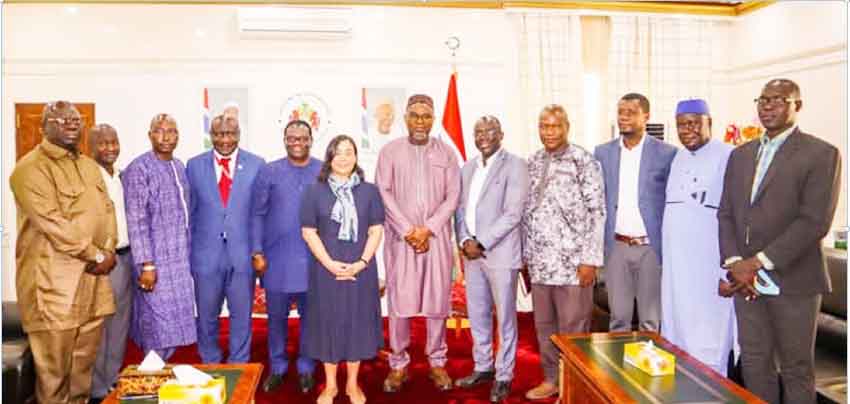The National Organising Committee of Early Warning for All Initiative (EW4ALL) in The Gambia, which comprises National Disaster Management Agency, Department of Water Resources, Ministry of Communication and Digital Economy and The Gambia Red Cross Society, organised a two-day workshop that brought together key national and international stakeholders to discuss EW4ALL initiative, strengthen early warning systems, and enhance disaster preparedness and resilience in The Gambia.
The programme, held at the Sir Dawda Kairaba Jawara International Conference Centre, aimed at providing the platform for sharing insights, identifying challenges, and fostering collaboration for the effective implementation of the initiative.
It aimed to help assess the current state of early warning systems in The Gambia, reviewing progress in implementing the four pillars of EW4All, identify linkages among ongoing initiatives and consolidate stakeholder commitments to strengthen early warning systems, strengthen or establish a national coordination mechanism to scale up end-to-end early warning systems, and conduct a gap analysis using the EW4All minimum core capabilities checklist to assess national early warning capacities.
In his launch statement, His Excellency Mohammed B.S Jallow, reaffirmed that the occasion marks a significant step forward in the nation’s ongoing efforts to enhance climate resilience and disaster risk reduction.
VP Jallow said Gambia, like many other nations, is increasingly vulnerable to the negative impacts of climate change. “Rising temperatures, erratic rainfall, flooding, coastal erosion, and prolonged droughts continue to threaten households and communities’ way of life; and these challenges call for urgent and decisive action to strengthen national early warning systems and disaster risk management strategies”.
He said the EW4All initiative, championed by the United Nations, seeks to ensure that every person, everywhere, is protected by early warning systems by 2027. The goal, he said, is fully aligned with national development agenda, climate adaptation policies and disaster risk reduction strategy. “Early warning is not just about forecasting weather events—it is about empowering communities with the information to act swiftly and effectively to prevent loss and damage,” he added.
VP said the initiative is a testament to their commitment to building a more resilient and disaster-prepared Gambia.
The Early Warnings for All (EW4All) initiative is a global effort launched by the United Nations Secretary-General in 2022 to ensure that everyone on earth is protected by early warning systems by 2027. This initiative prioritises the most vulnerable populations and is structured around four foundational pillars that incorporate disaster risk knowledge – systematically collect risk data and conduct risk assessments on hazards and vulnerabilities to improve understanding, observations and forecasting – enhance hazard monitoring and early warning services to provide accurate, timely, and actionable information, dissemination and communication – ensure early warning messages reach all relevant stakeholders in an understandable and usable format, and preparedness to respond – strengthen national and community response capabilities to act on early warnings, challenges in risk communication, response coordination, and public awareness, and recommend targeted solutions aligned with national development priorities, and provide initial inputs for a multi-year, multi-stakeholder EW4All national roadmap to guide investments and implementation efforts.
According to stakeholders, Gambia has made progress in disaster risk management, particularly in flood forecasting, climate monitoring, and community-based early warning mechanisms. However, key gaps remain in terms of coordination, technology integration, and community engagement. The government recognizes that a whole-of-society approach—involving national institutions, civil society, private sector, and development partners—is essential to strengthening early warning services.
Furthermore, given the disproportionate impact of disasters on women, children, and marginalized groups, an inclusive and intersectional approach is required to ensure no one is left behind.
By Kumba Leigh







